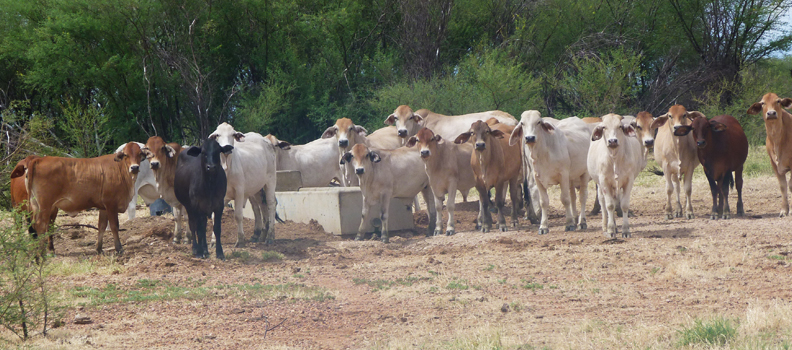Phosphorus deficiency in livestock

Phosphorus deficiency is a major problem in Australia, especially Northern Australia where it has been estimated that 70% of the soils are deficient in Phosphorus. It has been found that soils, where phosphorus is most commonly deficient, are in tropic and sub-tropic environments.
View Our Latest Blog on Phosphorus Here
Here at Beachport Liquid Minerals, we understand the importance of phosphorus in the diets of our livestock, which is why we have specifically designed our White Cap product to help assist livestock producers in phosphorous deficient areas.
Why is Phosphorus so important to the health of livestock?
Phosphorus is the second most required mineral in an animal’s diet but has more functions in the body compared to any other mineral. It has a close relationship with calcium within the diet, but where calcium is mainly found in the bones and teeth of the animal; only 80-85% of phosphorus is found in bones and teeth, the remainder can be found in soft tissue and fluid to assist with metabolic functions throughout the body.
Key metabolic roles that phosphorus is involved in include:
- Development and maintenance
Phosphorus and calcium work hand in hand together in forming the structural component of the animal; whether being teeth, bone or structural tissue. The skeleton also acts as a storage compartment for phosphorous and calcium, therefore when sufficient levels are in the bloodstream they are absorbed and reserved for when they are needed. - Energy!
Phosphorus plays a major role in energy utilisation, transfer and metabolism. - Absorption, transportation and exchange
Phosphorus compounds are involved in all major functions such as protein synthesis. Phosphorus is also involved in the transport of fatty acids and the exchange of amino acids. - Growth and cell differentiation (DNA)
Phosphorus helps forms part of the nucleic acid which is involved with the genetic transfer in DNA.
Phosphorus has an important role in the animals feed conversion, appetite and fertility.
Don’t forget about the microbes!
Microbes are critical in the role of digestion in ruminants. In some way, you aren’t feeding the animal but are feeding the microbes; which convert feed intake into proteins, carbohydrates, etc. Rumen microbes need phosphorus as well as other nutrients, minerals and proteins, but with inadequate phosphorus, in the microbes diet this will decrease the appetite and impact the feed conversion of the animal.
What are the symptoms of phosphorus deficiency?
Symptoms your livestock may show if they are deficient in phosphorous are:
- Chronic phosphorus deficiency includes weight loss, stiff joints and muscular weakness.
- Poor bone formation including stunted growth and broken bones
- Chewing foreign material such as bones, dirt, wood or stones
Livestock that may be deficient in phosphorus may not always present physical signs, other things to look for are:
- Poor feed conversion
- Decrease in fertility
- Decrease in milk quality, production and yield
Treating phosphorous deficient livestock
If you are unsure if your herd is deficient in phosphorus, there are simple tests available to detect the phosphorus levels of the animal. For more information about tests available please contact your veterinarian. It is also recommended to test the phosphorus levels in the soil and pasture as this is most likely where the deficiency started.
Beachport Liquid Minerals offers a liquid supplement for livestock that suspends into the water system; making it simple, cost-effective and ensuring that all animals in the mob have access to the minerals they need.
Beachport Liquid Minerals White Cap not only contains phosphorus but copper, cobalt, manganese, magnesium, selenium, zinc and iodine. With a unique 3-in-1 formulation of trace elements, amino acids and electrolytes we can increase phosphorus and sulphur levels without impacting on the availability of magnesium and zinc in the product.
Written by Kate Fairlie
B.Agriculture Science
